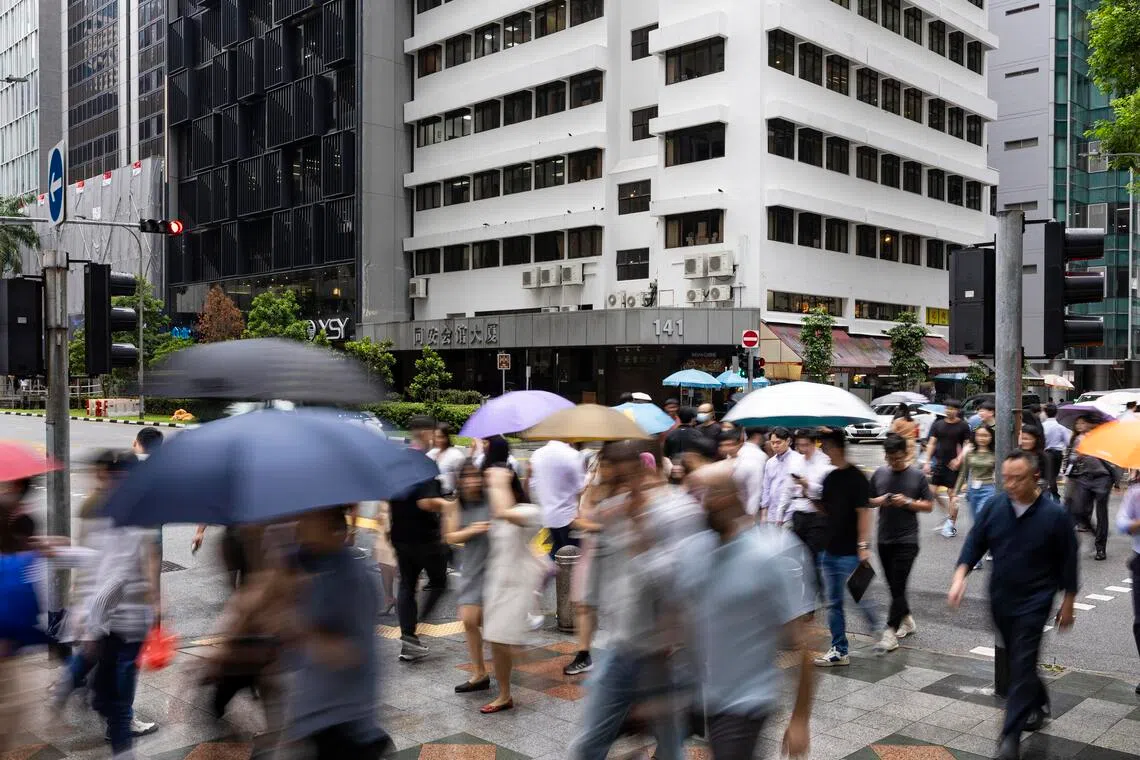NTUC will help workers navigate AI disruptions: Desmond Choo
Sign up now: Get ST's newsletters delivered to your inbox

NTUC deputy secretary-general Desmond Choo called for workers to be given fair gains from improvements in productivity.
ST PHOTO: BRIAN TEO
- NTUC pledges to support workers through AI-driven disruptions, focusing on protecting livelihoods and ensuring fair gains from increased productivity.
- Desmond Choo urges employers to be transparent and involve workers in transformation plans, prioritising skills over qualifications for hiring and promotion.
- Workers must also proactively develop new skills and adapt to changing roles, he urged.
AI generated
SINGAPORE - The National Trades Union Congress has pledged to help workers navigate the challenges of disruption, including job anxieties brought about by the rise of artificial intelligence (AI).
Speaking in Parliament on Sept 24 during the debate on the President’s Address, NTUC deputy secretary-general Desmond Choo said the labour movement is committed to protecting livelihoods and leaving no worker behind.
“Our mission has always been to protect our workers through every economic wave, and the age of AI is no different,” he said.
Mr Choo, who is also Minister of State for Defence, called for workers to be given fair gains from improvements in productivity. He emphasised equal use of technology that serves and uplifts all, instead of creating a divide between “winners and losers”.
“A world in which only shareholders and a select few benefit from economic transformation is neither desirable nor sustainable,” he said.
He gave the example of a man in his 50s he met recently at a job fair. Despite having done what he could to stay ahead of the curve, including completing courses and earning diplomas, the man was retrenched after AI changed the business landscape.
“He felt like he was running in place. On a treadmill. And as he spoke, I could hear the one thing that chips away at a person’s soul: the feeling that your hard work doesn’t count any more.”
He urged employers to involve workers in building the transformation plan together, and to shift their focus from paper qualifications to practical skills and capabilities.
The skills-first approach, he noted, is when workers’ potential to learn is more valuable than the paper credentials they have. “It’s about hiring, rewarding and promoting based on what an individual can do and learn, not just what their qualification says.”
He also urged workers to take ownership of their career health, continue to build new skills and stay adaptable to pivot to new roles when needed.
He also outlined some principles regarding the incorporation of AI and automation in the workplace. For instance, he called for transparency in the transformation journey, where employers should involve the unions and workers to chart a common path ahead.
He noted that years before the first automated guided vehicle was operationally ready in Tuas, PSA and the Singapore Port Workers Union mapped out every affected role and retrained the workers for the transition.
He contrasted this with the paralysing port strikes in the US East Coast and Gulf Coast ports
“In many places around the world, that’s where the story ends. But in Singapore, we chose to write a different ending. We turned a story of fear into a story of opportunity.”
He added that challenges in addressing workers’ needs and welfare include navigating disagreements on the way forward. This means having the courage to tell the Government when a policy – however well-intentioned – will hurt workers on the ground.
“We will continue to be unabashed in our feedback, because true partnership is not defined by the absence of disagreement, but by the strength to work through it to find the best outcome for Singapore and Singaporeans.”


